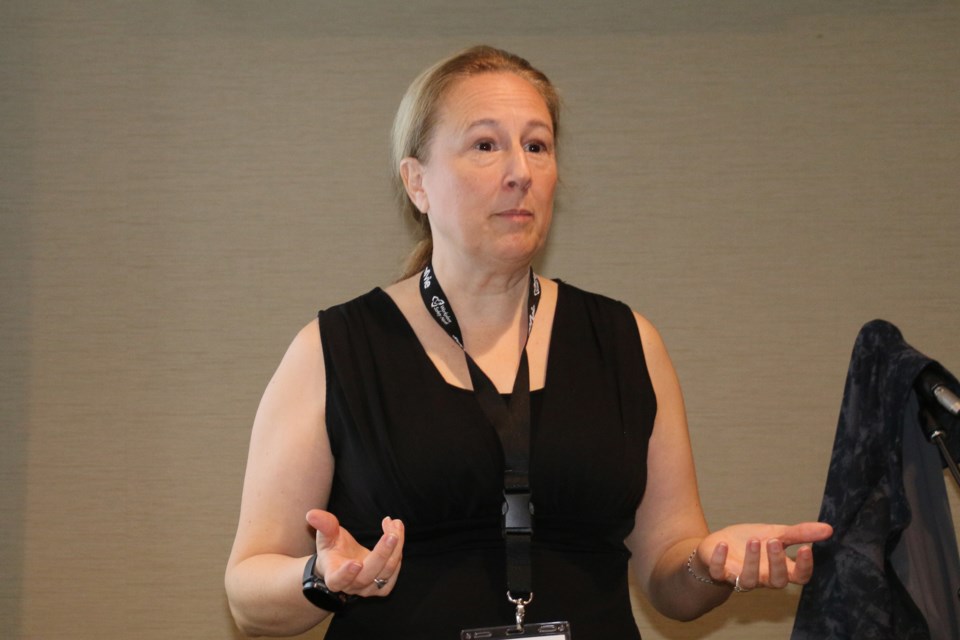With things like climate change and some Ontario mines going deeper, a Sudbury scientist is looking to make workplaces safer for the worker by monitoring how quickly their bodies get uncomfortably warm, which puts them at risk.
To deal with this issue, Ontario workers will soon be provided with "toolkits" to those who are overexposed to heat in the workplace. A new heat stress awareness guide has been developed by OHCOW (Occupational Health Clinics for Ontario Workers) and by the Sudbury based CROSH (Centre for Research in Occupational Safety and Health). The heat stress toolkits will be released to the public in May.
Sandra Dorman provided the information Thursday during a seminar at the annual Workplace Safety North annual mining safety and health conference held in Sudbury last week.
Dorman is a full professor in the School of Kinesiology & Health Sciences at Laurentian University, where she has been researching the use of wearable technology to help measure body temperature changes of people in the workplace.
She said it is important for industry and the commercial sector to continue to develop more and better body sensors - things like smartwatches - that can measure heart rate and skin temperatures so that workers can have a better idea of when getting too warm so as to avoid heat stress. Dorman added that monitoring body heat and the heart rate are key factors to avoiding that kind of stress.
There are many high-tech devices that are excellent for measuring body core temperature, but they're not always practical or robust enough to withstand the rigours of the workplace, she said.
Wearable devices are quite good for measuring heart rate, which is a key indicator of when a person is getting too warm, Dorman said.
She said in one research test, scientists witnessed a worker experiencing a heat stroke event as he was being monitored.
"And the heart rate went really crazy before the core temperature (rose) and before he fainted," Dorman said.
She said as core temperature rises, the heart responds by quickly pumping more blood throughout the body as part of the body's cooling mechanism.
Dorman said as technology improves, so will the commercially available body sensors that workers can use. She said the devices will also be able to adapt to the personal information inputted by the user.
"As the devices become more integrated and more robust, you will absolutely be able to put in medical history as the baseline data," said Dorman.
She said while most research data is carried out on fit men in their twenties, the monitors for people working in extreme warm environments can be adapted for older workers, who might have a heart condition, for example. Dorman said individual workers can adjust the monitors for their personal situations.
"Like you would tell it how much you weigh, how old you are. You would flag it if you're on certain medications that are going to put you more at risk. You can put all of that in there. And then the device should adjust its calculations accordingly," said Dorman.
She said monitoring devices should become part of a worker's personal protective equipment if that worker is assigned to a high stress and warm temperature workplaces.
Dorman said the devices also need more research.
"And that's why it's important to start using them, and start making them better. And working with the companies to make them better, because the companies can see it, and they have tried it. But it just hasn't been done in the field enough," she said.
Dorman predicted that in five years the research, knowledge and technical devices will be much improved.
Len Gillis covers the mining industry as well as health care for Sudbury.com.
